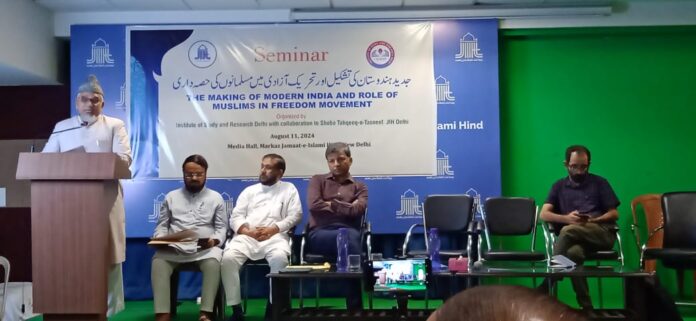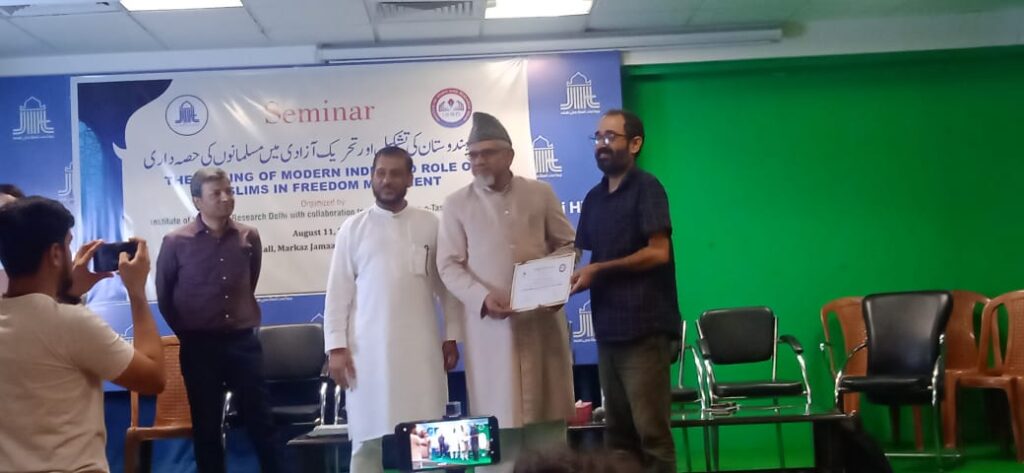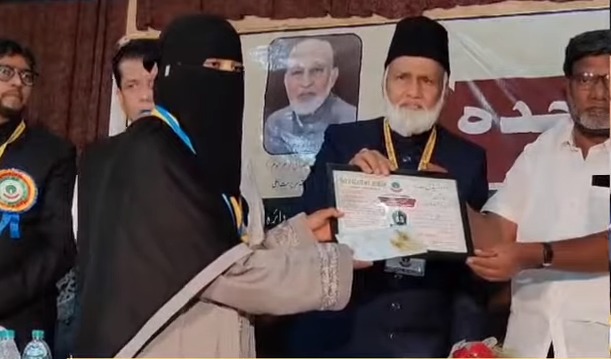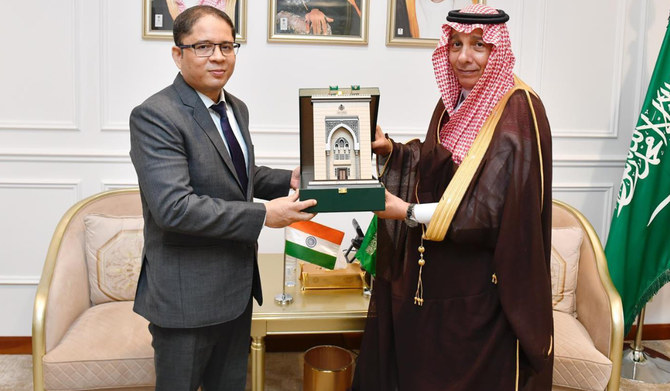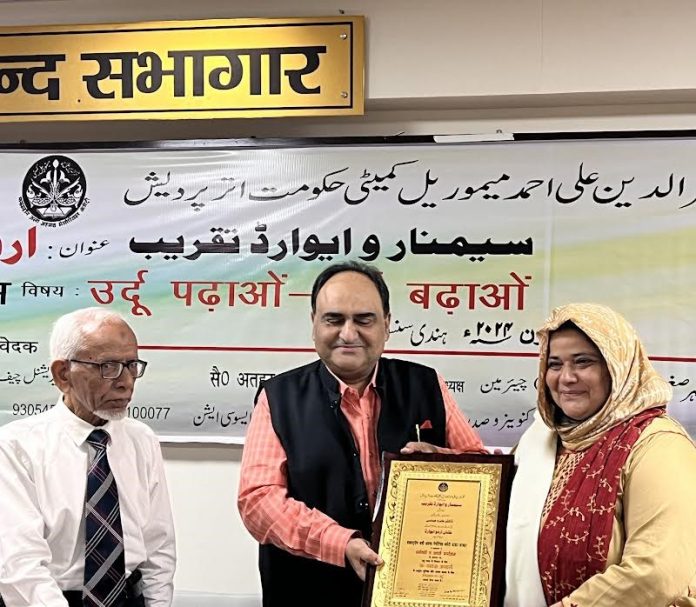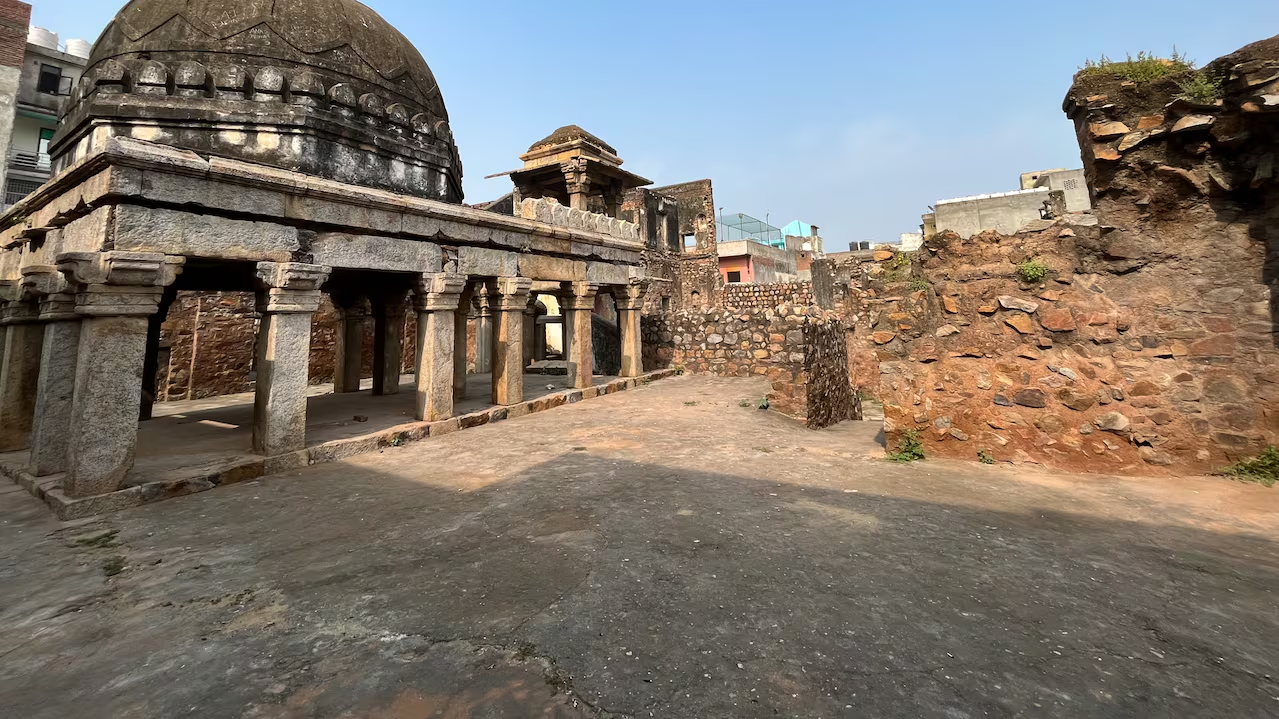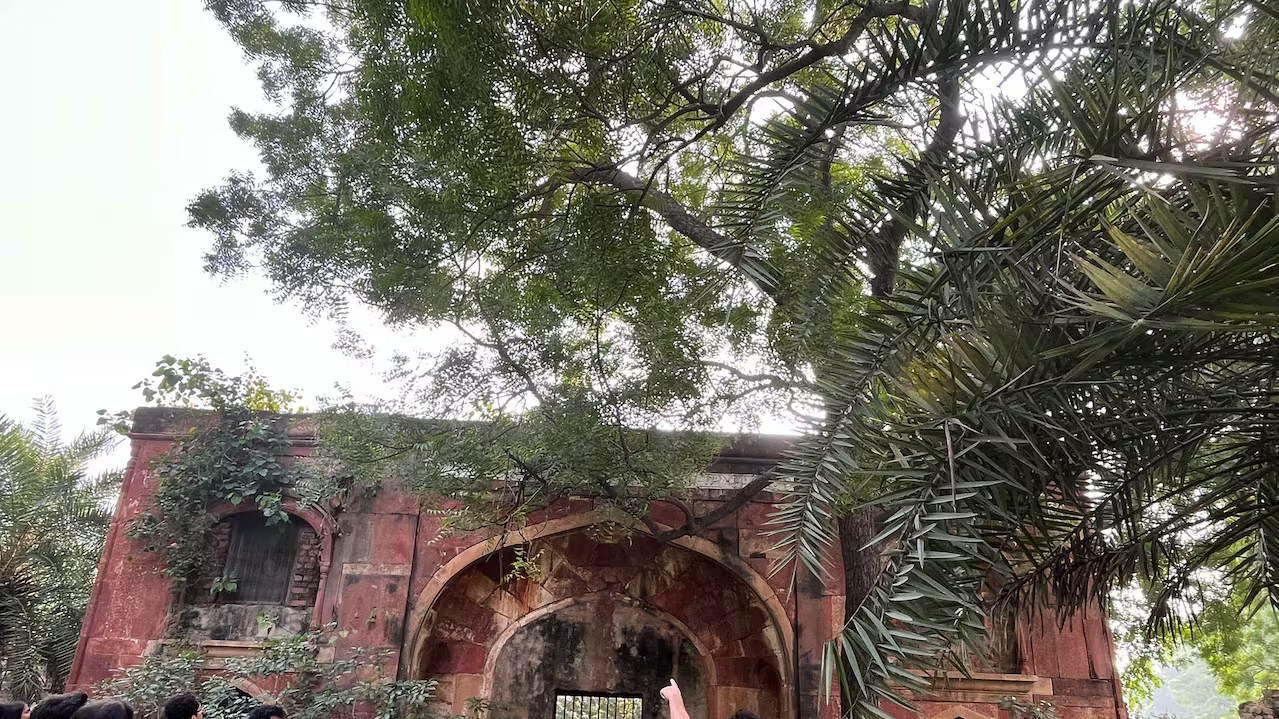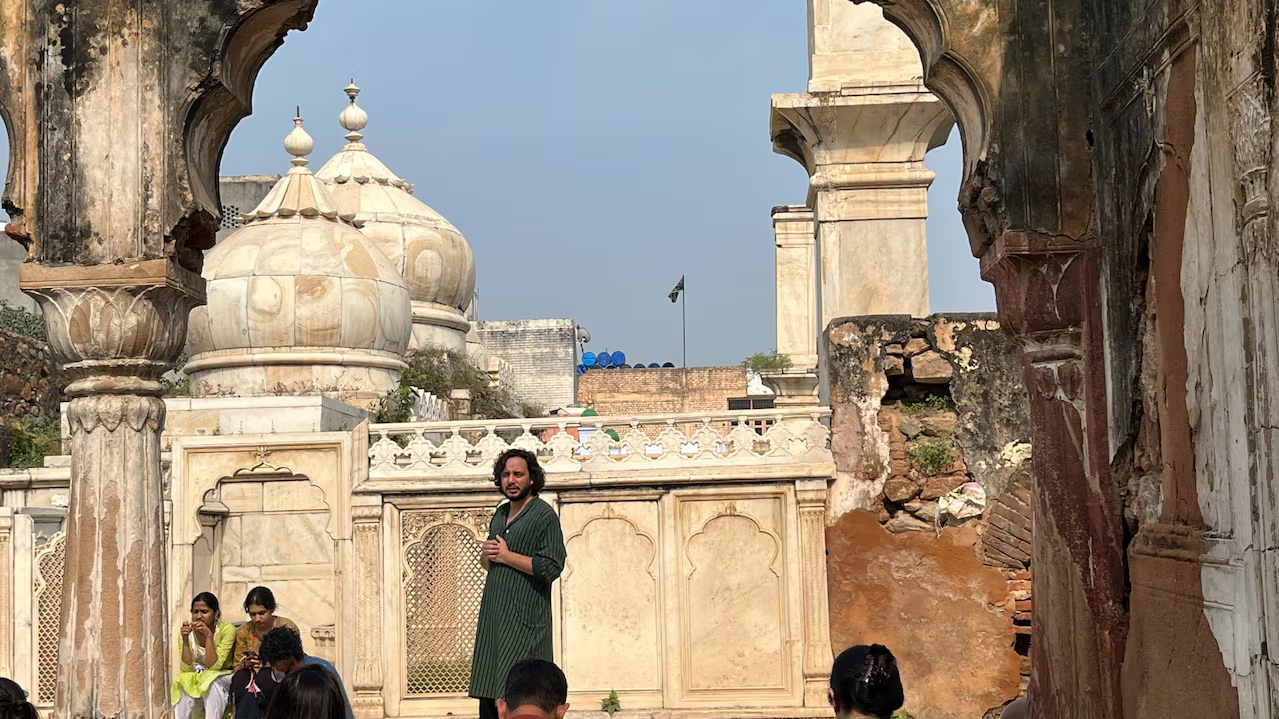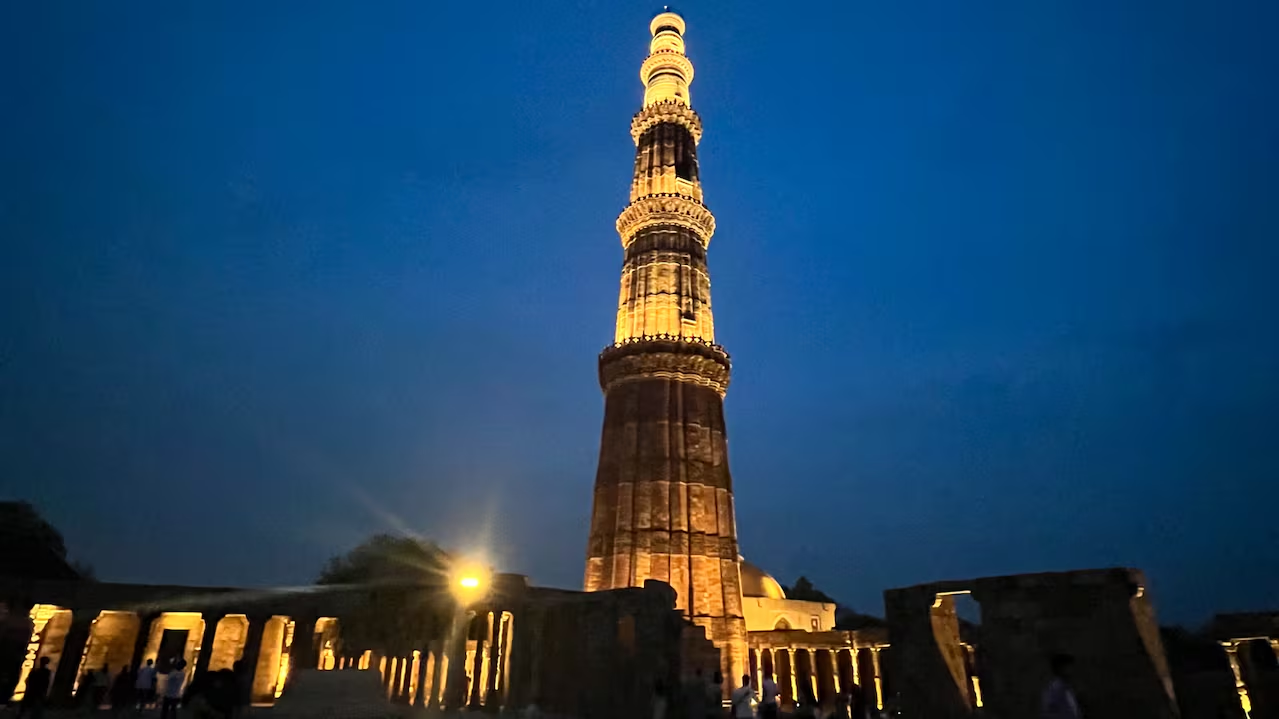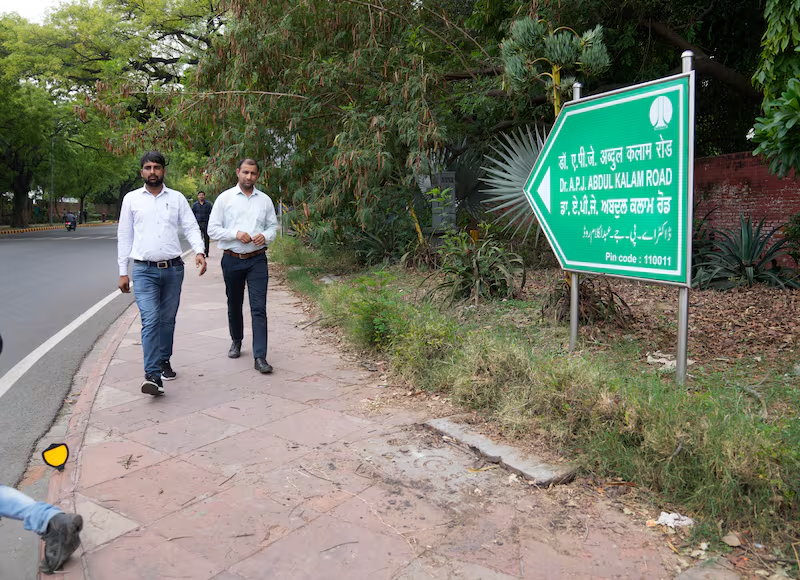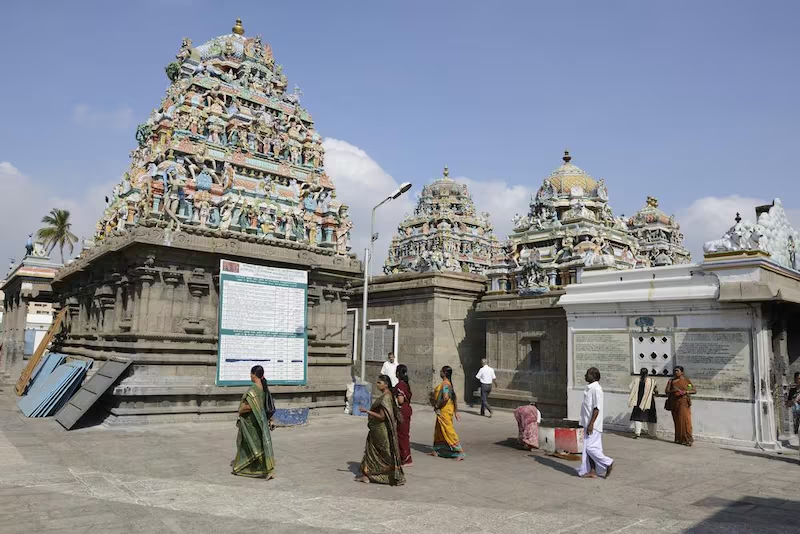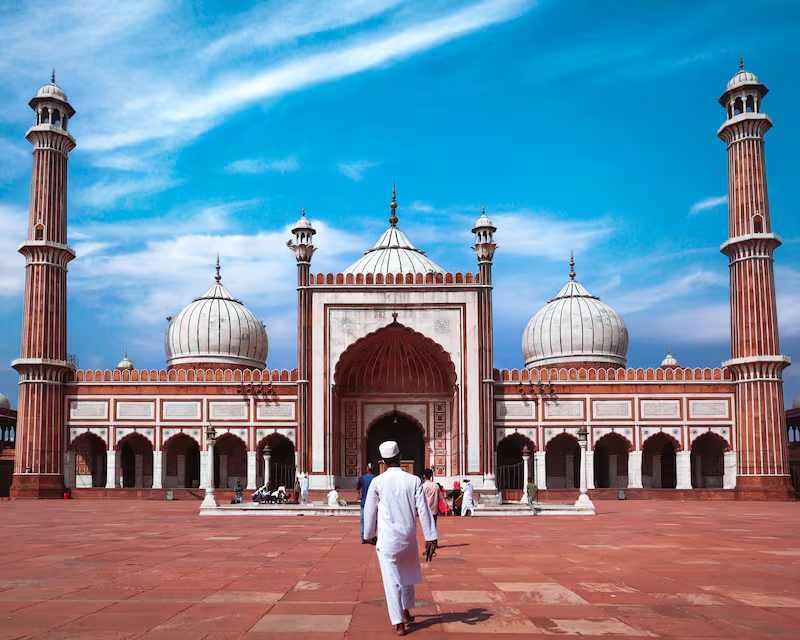xxxx
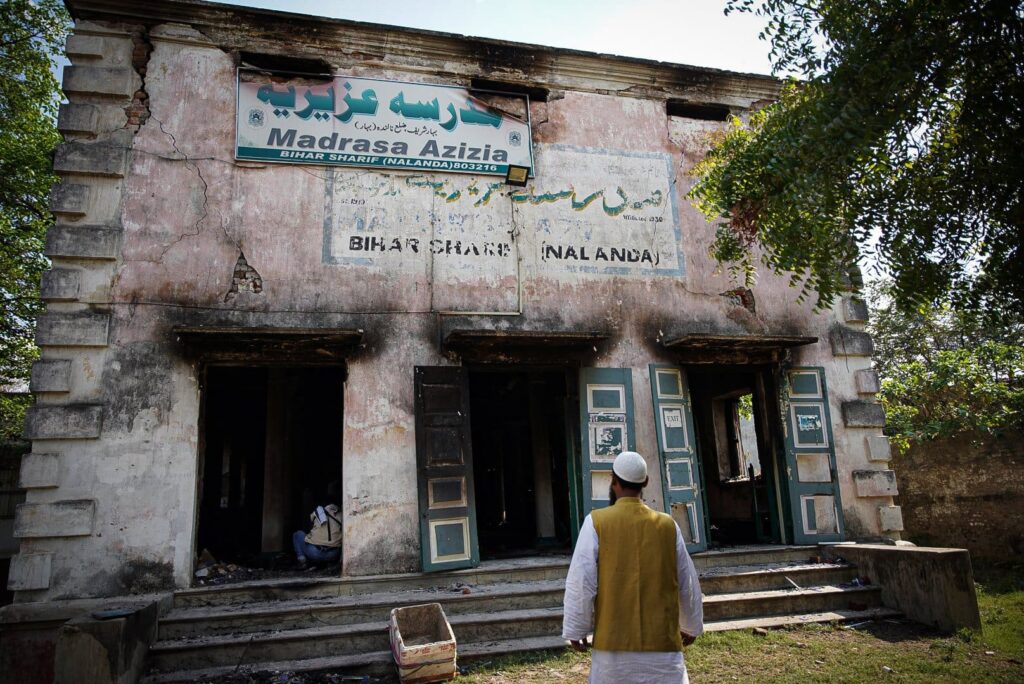
110-year-old madrasa and library set ablaze by Hindutva mob during Ram Navami rally in Bihar. Photo: Meer Faisal/Maktoob
The 46th World Heritage Committee meeting is being held in India from July 21-31, 2024. The event’s webpage proudly displays the iconic Taj Mahal, a grand symbol of India’s resplendent past. However, using this monument to showcase India’s heritage is both ironic and deeply painful. The Taj Mahal, a symbol of India’s architectural grandeur and a testament to the rich cultural contributions of the Mughal era (1526-1857), is being showcased even as the country engages in a systematic erasure of its Muslim heritage. This stark juxtaposition highlights a troubling contradiction: while the Taj Mahal is celebrated globally as a symbol of India’s beauty, the political will of the government and segments of the public are actively undermining and erasing the broader historical and cultural presence of Muslims in India. The assault on the place of Muslims began many decades ago in 1992 with the destruction of the Babri Mosque, built by the first Mughal ruler of India, Zahir-ud-din Babur, in 1527 A.D.
On December 6th, 1992, the Babri Mosque was destroyed by Hindu Kar Sevaks affiliated with the Bharatiya Janata Party (BJP). This mob, led by L.K. Advani, a prominent BJP figure and future Deputy Prime Minister (2002-2004), dismantled the over 400-year-old mosque. The world largely overlooked this deliberate destruction, perhaps viewing it as another in a series of violent riots between Hindus and Muslims in India. However, this was not just another riot. The destruction of the Babri Mosque was a political as well as an ontological act against Muslims, bringing their identity as Indians into question. Muslim history and heritage, and Muslims—collectively and individually—continue to be violated, undoing the secular national body.
I experienced the aftermath of the destruction of the Babri Mosque firsthand. Arriving in New Delhi from the US on the morning of December 8th, I encountered an eerily desolate airport, flights cancelled, and the skeleton staff at work refused to provide any assistance or guidance after checking my passport and recognizing that I am a Muslim. There was nowhere I could go; Delhi, the capital city of India, was under curfew. Sitting in the terminal, enveloped in a deadly silence and feeling a great sense of anxiety for my safety, I realized that the India I knew, my home, had undergone a seismic shift. The demolition signalled a significant turning point: Muslims and their history were now being cast as “outsiders,” foreigners who did not belong, and their legacy of nearly a millennium was under threat of erasure by charged religious-nationalist politics. Religion was no longer a private matter for personal practice and moral guidance; it had become a public discourse and weapon to use. Indian Muslims, the largest religious minority in India and globally, were under serious threat of survival. The Babri Mosque’s demolition was the beginning of erasing Muslims from the landscape of India; the extensive campaign aimed at obliterating the Muslim historical presence is ongoing.
In the years following the demolition, numerous other Muslim heritage sites, including mosques, Sufi shrines, libraries, community spaces, and private homes have faced similar fates. The deliberate and planned destruction of Muslim history has become a matter of celebration to claim Hindu pride. Every act of the physical destruction of a Muslim building is a public community event with men armed with different tools, supported by the tacit backing of the state, breaking and demolishing buildings. At the same time, thousands watch the violent spectacle of nationalism. Buildings are not just made of bricks and mortars, they are the storehouse of precious memories of a previous era and stand as silent reminders of people interconnected over generations—their sacrifices, dreams, everyday lives, emotions, and sentiments. For the destroyers of Muslim heritage, the sentiments of the past etched into the buildings do not matter; rather their concern is to disconnect Indian Muslims from India’s past, denying them a place in India’s future. The message is clear: Muslims are a minority, and as such, their life, death, memory, and future are controlled by the majority. Muslims’ claim of contributing to India’s rich heritage is no longer accepted in some political circles. This ontological destruction is the heart of the attack on Muslims in India—to cripple the community into the unknowability of its identity as Indian Muslims.
Would the 46th World Heritage Committee meeting in Delhi take account of the death of Muslim history in India? As a historian of India, I am deeply aware of the pain I felt when the Babri Mosque was demolished. I ask the leaders of the Heritage Committee: do they feel the pain of Muslims in India who are denied their heritage because some people want to make them “foreign” and irrelevant to India’s history? Can history be obliterated because one ethnic community, although a majority, wants to deny it to another ethnic community, a minority? Can history be made to disappear simply by the will and violence of the majority community? These and many more questions should be discussed and deliberated in the 46th World Heritage Committee meeting.
Mourning the destroyed buildings
The list of destruction of Muslim sites is far too many to do a comprehensive study; it is ongoing. In this frightful and destructive scenario, nothing is spared in the rampant violence – historic as well as newly built and permitted mosques, tombs of Sufis who preached coexistence and pluralism, public libraries, madrasas, cemeteries, public spaces, and so on are merrily destroyed or intentionally neglected. The destruction is justified as pay-back time for Muslims who supposedly destroyed 880 Hindu sites in the past, though historians’ rich empirical studies carefully document the falsity of such populist claims. By reclaiming these sites by force, the BJP leaders and followers advocate they will cleanse India culturally and spatially and make Hindus the rightful owners of India.
The mass carnival of destruction of Muslim sites commenced in 2002 in Gujarat during the Godhra genocide. In Khuldabad, Gujarat, 230 unique buildings were destroyed, including a 400-year-old mosque and the tomb of Sufi Vali Gujarati, and old Qurans were set on fire. The damage was so extensive that experts compare it with the much-publicized destruction of the Bamiyan Buddhas in Afghanistan or the wrecking of Tibet’s monasteries by the Maoist Red Guards.
Since then, religious nationalists have destroyed numerous mosques and tombs in Delhi and across India. In Delhi alone, a millennium-old Sufi shrine of Baba Haji Rozbih was demolished, as well as the 700-year-old Akhondji Mosque, the landmark Jannatul Firdaus Mosque, and the Sarai Kala Khan Mosque and Madrasa were razed to the ground. During the 2020 riots in East Delhi, 16 mosques were destroyed. The Shahi Masjid in Prayagraj city and the 300-year-old historic mosque in Muzaffarnagar were recently demolished under the pretext of road-widening projects. Similar fates befell several mosques in Gujarat, Hyderabad, Maharashtra, Madhya Pradesh, and Karnataka. Meanwhile, the fate of the historic Sunheri Mosque in Delhi, the 800-year-old national heritage Shamsi Jama Masjid in Badaun, the Gyanvapi Mosque Complex in Varanasi, the Shahi Idgah Mosque in Mathura, the Dargah of Mumin Chup in Hyderabad, the Shahi Masjid in Gaya, the Chhoti Sona Masjid in West Bengal, and the mosque in the Qutb Minar Complex in the outskirts of Delhi, to name just a few, hang in the balance.
The destruction of the Muslim past is not limited to mosque destruction. More than 300 Muslim homes in Nuh, in Haryana, were destroyed in 2023, and only last week the Muslim village of Gajapur was laid waste by right-wing Hindu groups. The century-old Azizia Madrasa in Bihar was attacked and its 4500 rare books were burnt left smoldering in the graveyard nearby. Place names connected to the Islamic past are being renamed. For example, in 2018, Allahabad was renamed Prayagraj to distance itself from its Mughal origins. Similarly, the town of Faizabad was changed to Ayodhya (the demolished Babri Masjid was located here). Even the name of the railway station Mughal Sarai was changed to Deen Dayal Upadhyay Junction, after a leader of the BJP’s precursor organization, Bharatiya Jana Sangh. Hindu nationalists are demanding the Qutb Minar was a Vishnu Pillar and even the iconic Mughal building, the Taj Mahal should be renamed Tejo Mahalaya and declared a Hindu Shiva temple.
The government’s newest plan is to rename India to Bharat and connect the modern state to the religious knowledge of the Rigveda and the Mahabharata, where Bharatvarsha was used to describe the Indian subcontinent. Renaming India is the state’s effort to sever the knowledge of Muslims as Indians and their connections to the place, leading to a loss of historical continuity and identity.
“Nobody is crying about the loss of a building structure …It is the loss of our secular ethos,” Anand Patwardhan reminds us about the demolition of the Babri Mosque and the Muslim heritage buildings. The destruction of the Babri Mosque and various other mosques has not only eroded the secular ethos of India but has also diminished our capacity to appreciate the beauty, emotions, sentiments, sacrifices, skills, art, and painstaking work embodied in these structures. These buildings testify to the very project of humanity. Destroying them is tantamount to erasing our human capacity to value the people of the past as if they were less human. This is what we, as a collective of humans, should mourn, and this is what the 46th Heritage Meeting should take a moment to ponder. When the human element is destroyed, there will be no heritage left to preserve.
Why heritage matters
Cultural heritage is not simply a building nor just a resource to be protected: It is a central element in the stories that society tells about itself—its origins, the mixes and syntheses over time, future projects, values, and aspirations. David Lowenthal’s The Past is a Foreign Country (1985) explores the intricate relationships between the past and future by exploring the meaning of objects, calling for navigating the complexities of memory and politics that are imbued in them. The Muslim past of India is not of a foreign people who invaded, looted, and destroyed the country. Nor was India, for Muslims, a place for mere economic or geographic expansion where people came for personal gain, although this is how M.S. Golwalkar, a founding father of the Rashtriya Swayamsevak Sangh (RSS), described the Muslim interest in India in We, or Our Nationhood Defined (1939) and Bunch of Thoughts (1966).
For Muslims, as the renowned historian Barbara Metcalf poignantly discussed in her 1995 Presidential Address to the Association for Asian Studies, India is their motherland and a “resting place of angels.” This deep attachment was evocatively inscribed on the Babri Mosque entrance. The paradisiacal imagery of India was enunciated as early as the thirteenth century by the Muslim poet Hazrat Amir Khusrau and it was repeated in the seventeenth-century Diwan-e Khas (Hall of Private Audiences) in the Red Fort of the Mughal Emperor, Shah Jahan which is also showcased on the webpage of the 46th World Heritage Committee meeting. The couplet reads: “If there is heaven on earth, it is this, it is this, it is this!” Downplaying this deep attachment to India for Muslims and making the history they created into a battleground for strategic manipulation to construct a monolithic national Hindu identity resonates with Lowenthal’s arguments about the political uses of the past in the present.
The destruction of Muslim heritage sites severs the historical knowledge and continuity of Muslims as integral contributors to the nation’s history and India’s cultural and historical fabric. The deliberate destruction dislocates the Muslim community’s sense of place and belonging; a strategic act of ‘culturecide’. The Hague Convention for the Protection of Cultural Property in the Event of Armed Conflict (1954) requires states to ensure heritage is not damaged or misappropriated in war. But what about the destruction of heritage buildings during normal times? The 46th World Heritage Committee meeting should consider this question very seriously in their deliberations in India.
Preserving Muslim heritage in India is ultimately a human rights issue, connected to their freedom of expression, thought, conscience, and religion. Protecting the Muslim heritage of India cannot be overlooked any longer. The international group of leaders meeting in Delhi to discuss and deliberate on the importance of heritage can play an important role in stopping future violence not only to the buildings but to the people whose human security should be paramount. For Indian Muslims, India is their home; Muslims must feel safe and protected in India.
Yasmin Saikia is a professor of South Asian History and Peace Studies at Arizona State University. Her latest books are On Othering: The Processes and Politics of Unpeace (Athabasca University Press: 2024) and Cambridge Companion to Sayyid Ahmad Khan (Cambridge University Press: 2019)
source: http://www.maktoobmedia.com / Maktoob Media / Home> Features / by Yasmin Saikia / July 21st, 2024






